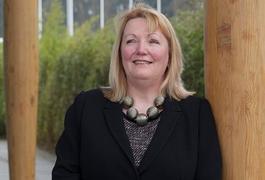Steps to financing a franchise
Article by Cathryn Hayes
Revive! Auto Innovations

A good franchisor will encourage and help their franchisees with business planning, both at the outset and on an ongoing basis - helping the business to get off to a flying start and continue to develop.
Many small business owners are just too busy to look at what is happening in the market place, what competitors are up to, how customers' needs might be changing - but a good franchisor will be looking at research and development, helping their network of franchisees to keep ahead of the game.
All this support means that banks are going to be much happier to lend to a start up franchisee. But before you are ready to talk to the bank about borrowing money to start your franchise, you need to establish how much funding you will need.
Costs
There are a number of costs which need to be taken into account, depending on the type of franchise - the initial franchise fee is really only part of the picture. For instance, an owner/operator franchise may need to purchase or lease a liveried van and they will need to fund opening stock.
A retail franchise will incur the cost of leasing premises and any refurbishment requirements as well as shop front, branding, fixtures and fittings. Franchisees would also need to think about professional charges related to the property transaction, such as lawyer, architects and surveyor's fees, as well as insurance. If employing staff, there may be recruitment costs; the franchisee may also need to provide uniforms. There will be marketing costs involved with an official launch of the business.
Working capital will also be required - what you need to live on prior to the business generating cash flow and profits. Find out whether training costs are included in the initial franchise fee; if not, these will have to be factored in.
Once up and running, you will pay the franchisor ongoing management services fees - this may be a percentage of your turnover, a mark up on products provided or a fixed monthly or weekly fee.
You should do your homework, and fully research what you will be getting for your money both at the outset and once your business is established.
For an established franchise, most of the major banks will lend up to 70% of the start up costs, for newer franchises the figure will probably be around 50%. You will pay the borrowed money back typically over the length of the initial franchise agreement.
Next Steps
The first step is to establish how much money you can invest in the business - what can you afford to invest? Have you got savings, can your family help?
Prepare a full list of your personal expenditure: mortgage, hire purchase, household bills, and so on. This will show how much money you will need to take out of the business in order to live. Consider what security you can give to back up your loan, you may be a life policy with some value, or have equity in your home.
Start preparing your business plan - this is a vital document for obtaining finance. Franchises will often help you with this. As part of your business plan, you will need to prepare cash flow forecasts for the first couple of years of the business. Your franchisor will help, but you need to be sure that you understand the figures, what they are based on and how much you will have to turnover in order to break even.
It is important to consider the financial implications carefully before buying a franchise. You are entering into a long term commitment and need to get the finance right at the outset. Don't do it on a shoestring, but don't borrow more than you can afford to repay.
Last Updated: 25-July-2016

